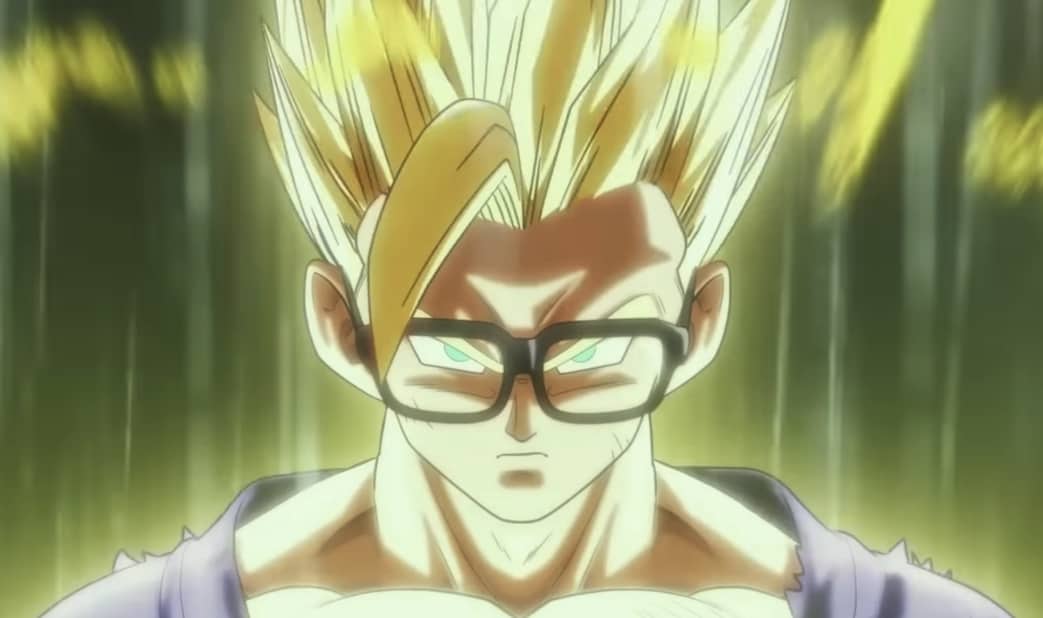The long-acclaimed Dragon Ball Z franchise recently released another film, Dragon Ball Super: Super Hero to the delight of fans (like me) and critics alike. What is it about this franchise, which began in 1989, that continues to draw people in?
One of the reasons I think the series has had such widespread appeal is that it has recognizable and easily digestible themes. For example, hard work is a common virtue held up in the series, mostly exemplified through the harsh training characters put themselves through in order to fight well. There’s also a clear good versus evil dynamic in every major story arc. Then there’s the iconic fight scenes for which the series is known.
There’s also a wonderful supporting cast of characters, most of whom have faded away in recent years, which fans have long lamented. The series historically focuses mostly on Son Goku and the adventures he and his many friends have had from Goku’s childhood well into his adulthood. He’s probably the most recognizable anime character, with his orange gi and spiky black hair which change colors when he goes ‘Super Saiyan’. As Goku grew stronger in the course of the series, only his rival Vegeta stayed relevant in battle alongside him. And it’s for this very reason Goku and Vegeta don’t star in the new movie. The two are on another planet in a fierce but nonlethal competition to see who’s more powerful.
As a result, two other figures become our central focus: Gohan, Goku’s adult son, and Piccolo, an alien who was Goku’s fiercest rival at the beginning of the Dragon Ball Z series but who eventually became Goku’s friend and ally. The film is better off for focusing on these two because it makes the stakes higher. While Piccolo maintains his training, even helping to teach Gohan’s daughter Pan, Gohan has mostly foregone his training over the years. He has devoted himself instead to his research as a great scholar. But when a new force arises to take down their friends and families, both Gohan and Piccolo must rise to their defense.
The villains of the film share in the history of the major story arc. Magenta, the son of another series villain named Commander Red, is the owner of a pharmaceutical company. Like his father, he’s after worldwide power and control, willing to do whatever it takes to accomplish his goals. He recruits the young and arrogant genius, Dr. Hedo, the grandson of another villain in the series named Dr. Gero. Magenta wants Dr. Hedo to create super-advanced androids to give Magenta’s secret army the force it needs to take control of the world.
Even though Dr. Hedo is more interested in using his androids to serve heroic purposes, Magenta convinces him to join his efforts in achieving global domination. In order to manipulate Dr. Hedo, Magenta retells the story of Goku and his friends from a decidedly less heroic lens. He frames Goku and his friends as aliens who want to enslave humanity. Magenta knows that the people who are most likely to ruin his evil masterplan is Goku because Goku and company twice thwarted Magenta’s father’s same efforts. Dr. Hedo suspects that he is being manipulated, but he still goes along with Magenta, because doing so will enable Dr. Hedo to expand his research.
Dr. Hedo’s decision to go along with Magenta is similar to a decision we all may face. It’s easy to be tempted by what we suspect are lies when they give us the power or security we want. St. Ignatius says that’s because we’re tempted by riches, honor, or pride. In Dr. Hedo’s case, he is offered all three if he works for Magenta.
In the Spiritual Exercises, St. Ignatius explains the source of this sort of temptation in his Two Standards meditation. In that meditation, Ignatius advises the retreatant to consider two different leaders operating on a spiritual battleground: Jesus and Satan. Jesus promises life while encouraging his followers to endure poverty and insults in order to ultimately foster the spirit of humility necessary to enter the Kingdom of Heaven. For many of us that path is difficult and hard to choose, even though we may know that it will bear greater spiritual fruit. Satan instead tries to ensnare us through promising us riches and honors in order to grow in us the spirit of pride. It’s the same kind of temptations he used against Jesus in the desert. This is what the Church refers to as the “glamor of evil,” and in the long run it only leads to death.
During the climactic battle near the end of the film, Dr. Hedo fully realizes Magenta’s lies. He recognizes that he has chosen the wrong side, and he has a conversion experience. Both he and his androids reverse course and team up with Gohan and Piccolo to stop Magenta from using his most powerful weapon, a bioweapon called “Cell Max,” a mindless raging monster bent on widespread destruction. While this creature is based on “Cell”—a creature who possessed the fighting capabilities of the greatest warriors to ever live and the ultimate creation of Dr. Hedo’s grandfather—Cell Max is simply a mindless force of nature. The huge beast can use its immense power to destroy almost anything in its path, and individually our heroes stand no chance against it. They are forced to work together to have a chance of succeeding against it.
Keeping with the Dragon Ball Z franchise history, the heroes succeed in the end. Also in line with the series, this newest film hits on the classic theme of good and evil. And, by spending time explaining the motivation of our new villains, we’re able to see one of Dragon Ball’s other notable theme: the redemption of characters. Similar to how Piccolo went from trying to destroy the world in his first appearance long ago to currently being one of its staunchest defenders, Dr. Hedo’s character arc is bending towards justice. My hope is that after watching Dragon Ball Super: Super Hero, fans remember that no one is beyond the scope of redemption.


